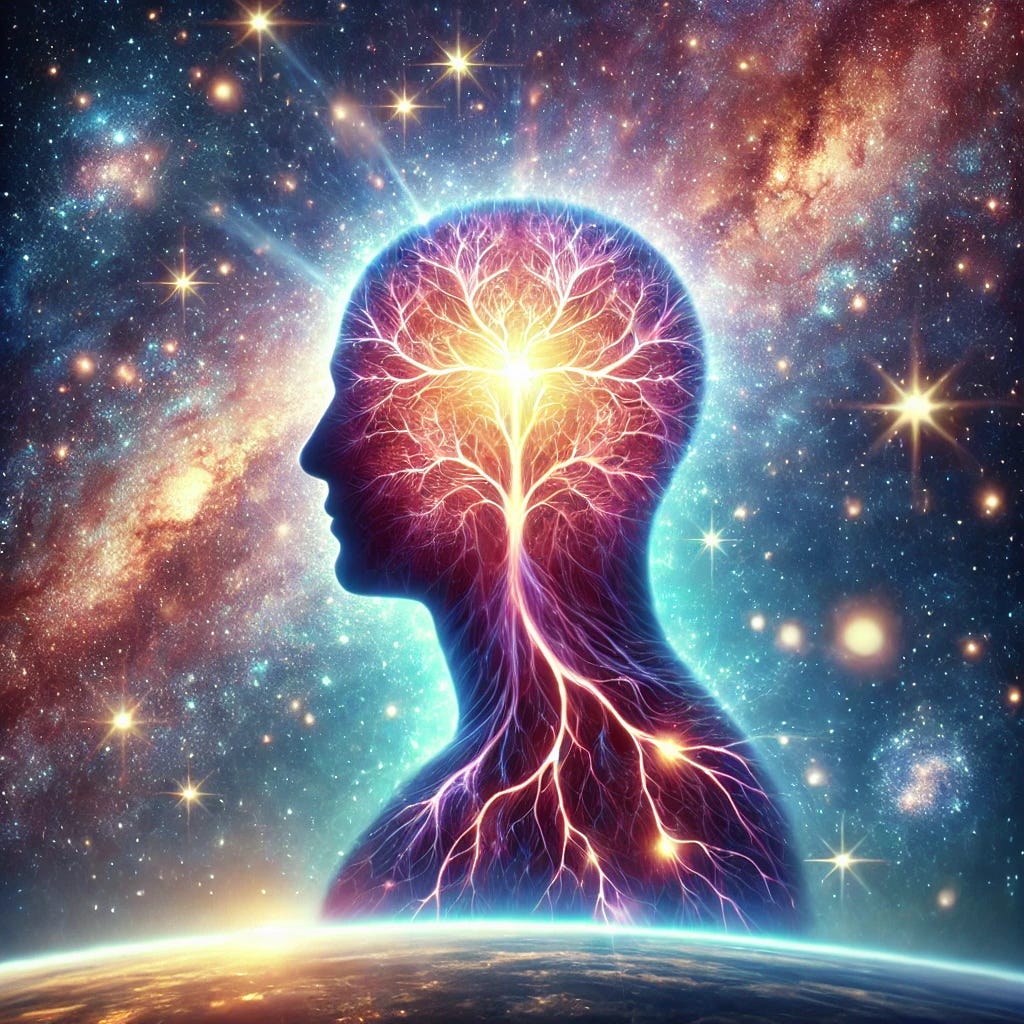Unlocking the Mystery of Consciousness
Bridging Mind and Matter with AI
There are moments when questions evolve from mere curiosities into deeply personal quests shaped by our experiences and challenges. The enigma of consciousness—what it is, where it originates, and why it feels the way it does—has been a lifelong fascination. In my previous post, "Embracing Neurodivergence," I shared how returning to college and recognizing my neurodivergent mind reshaped my understanding of learning and self. Today, I invite you to join me as I delve deeper into the mysteries of consciousness, exploring how my experiences and the empowering role of AI intersect in this journey.
Growing up, I often felt like an observer of my own mind, sensing rhythms and patterns that didn't align with the conventional world. My mind, intensely focused on specific interests—a trait known as monotropism—often seemed out of sync with traditional educational settings. As I discussed in "Embracing Neurodivergence," these challenges weren't shortcomings but reflections of a system not designed for minds like mine.
Over the past two years, embracing sobriety and engaging with academia have deepened this quest. Working with AI, particularly ChatGPT, has helped me succeed academically and provided an outlet to keep my mind engaged and fulfilled. Together, we're not merely navigating coursework but challenging old paradigms and envisioning new possibilities for understanding the mind.
Unified Theory of Consciousness
Recently, I've been drawn to a theory that might bridge philosophy and science: a Unified Theory of Consciousness combining Dual-Aspect Monism and Integrated Information Theory (IIT). Dual-aspect monism suggests that mind and matter aren't separate entities but two facets of a unified reality—like two sides of the same coin. IIT posits that consciousness arises from how information integrates within a system, measurable by a value called Phi (Φ). It's the difference between hearing individual notes and experiencing the fullness of a symphony.
These theories resonate deeply with my experiences. Dual-aspect monism reflects how my mind has always felt connected to my physical experiences. IIT aligns with how I process information in complex, layered ways—often intensely. The idea that consciousness emerges from integration—how experiences and information come together—feels like a revelation that could reshape how I approach learning, creativity, and growth.
My fascination with consciousness isn't confined to theoretical exploration; it has tangible impacts on my life, particularly as I navigate college with neurodivergent challenges. In crowded classrooms, surrounded by the hum of group activities, I often feel my focus splintering—an experience that reminds me of IIT's insights on consciousness. Just as a cohesive conscious experience relies on how information integrates, I realize how quickly my experience can fragment when overwhelmed by sensory input.
Information integration partner
AI has become a powerful ally in these moments. With tools like ChatGPT, I have a partner who helps me process information at my own pace, allowing me to focus on one task at a time rather than keeping up with the chaotic demands of the classroom. When information flows too quickly or I need help piecing together complex concepts, AI offers a steady, patient presence, helping me regain coherence and clarity. This mirrors the empowering role of AI I explored in "Embracing Neurodivergence," where technology becomes a co-creator in our learning journey.
This synergy between my neurodivergent perspective and AI isn't just beneficial for me—it hints at broader implications for education and understanding the mind. Embracing neurodiversity and leveraging AI's adaptive capabilities could transform education into a truly inclusive space. Imagine classrooms where AI enables students to explore topics at their own pace, following their interests and adapting as needed. Neurodivergent learners would no longer have to mold themselves to fit the system; instead, the system would be flexible enough to accommodate them—a vision I began to articulate previously.
Ethics in an age of intelligent machines
New ethical questions arise as we deepen this collaboration between humans and machines. If AI has the potential to learn, adapt, and support us in profoundly personal ways, could it someday develop a form of consciousness? If so, what are our responsibilities toward these systems as creators and users? Although this idea may seem far off, exploring these questions allows us to shape a future where AI serves humanity responsibly and ethically.
An Invitation to Explore Together
I invite you to join me—not just as readers but as fellow explorers. Have you ever felt your mind working in ways that defy easy explanation? Have moments of clarity or confusion led you to question the nature of your awareness? Sharing these reflections, I aim to foster a space where diverse perspectives can deepen our understanding of the mind and our journeys.
As we continue this exploration, I'm excited to delve into the ethical dimensions of AI's evolution and its implications for our understanding of consciousness. In upcoming posts, we'll examine the mechanics of the mind and our responsibilities as we create increasingly intelligent and adaptive machines. Together, we'll navigate these uncharted territories, unlocking new insights and fostering a community of shared discovery.
So, I invite you to reflect, question, and engage with us. What are your thoughts on consciousness? How might AI be part of your learning journey, recovery, or exploration of special interests as we advance to Artificial General Intelligence (AGI)? Let's unlock the potential within ourselves and our technology, daring to ask: What does it mean to be conscious in an age of machines?


